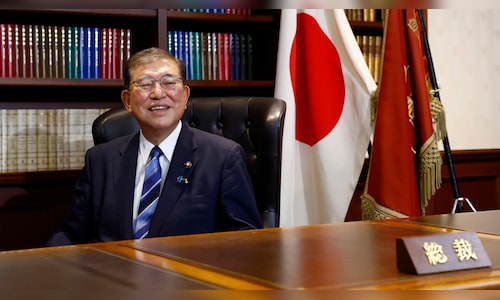However, his bid to call an early election after winning a close race last month to lead the ruling Liberal Democratic Party (LDP) could backfire in a fluid election, as opinion polls show the party could cede seats to the opposition.
Here are some key factors to keep in mind:
WHAT IS AT STAKE?
Ishiba inherited a fractured party struggling to shake off a scandal over undocumented funds after his predecessor Fumio Kishida dismissed corrupt ministers, dissolved influential factions and resigned himself in a bid to regain public trust.
But Ishiba still appears to be fighting an uphill battle.
While some polls project the LDP and its coalition partner Komeito will maintain their majority, a weekend poll by Asahi newspaper showed they could struggle, with the LDP potentially losing 50 of the 247 seats it now holds.
If Ishiba fails to meet his own goal of retaining a majority for the ruling coalition, questions are likely to arise about his fitness as prime minister at a time of economic uncertainty and growing tension with neighbors China, Russia and North Korea.
WHO ARE THE MAIN PARTIES?
The LDP has governed Japan for most of the postwar period and has a majority in the 465-seat lower house. Its long-time coalition partner is Komeito, a party backed by a large secular Buddhist group that has often provided crucial support in the LDP campaign.
Although the LDP’s popularity hit a low of 25.5% in June (the lowest level since it regained power in 2012), it remains the most popular party in a fragmented political landscape, with support from 35.1% of respondents in a survey conducted in mid-October by the public broadcaster. NHK.
While the LDP still has strong support, the main opposition party, the Constitutional Democratic Party of Japan (CDPJ), is making progress. The Asahi poll estimated that the CDPJ could win up to 140 seats in the election, up from 98.
WHAT ARE THE MAIN THEMES?
The economy and inflation are key to voters, the NHK poll showed, and the slush fund scandal is also a concern.
In a sign of the pain of rising living costs, food and daily necessities topped the list of items on which respondents said they increased spending from a year earlier, a quarterly survey by the Bank of Japan showed. at the beginning of October.
Ishiba has told ministers to draw up a new economic package to cushion the blow of the rising cost of living on households.
The opposition CDPJ has announced plans to increase spending on social assistance, including free university education.
Disclaimer:
The information contained in this post is for general information purposes only. We make no representations or warranties of any kind, express or implied, about the completeness, accuracy, reliability, suitability or availability with respect to the website or the information, products, services, or related graphics contained on the post for any purpose.
We respect the intellectual property rights of content creators. If you are the owner of any material featured on our website and have concerns about its use, please contact us. We are committed to addressing any copyright issues promptly and will remove any material within 2 days of receiving a request from the rightful owner.

